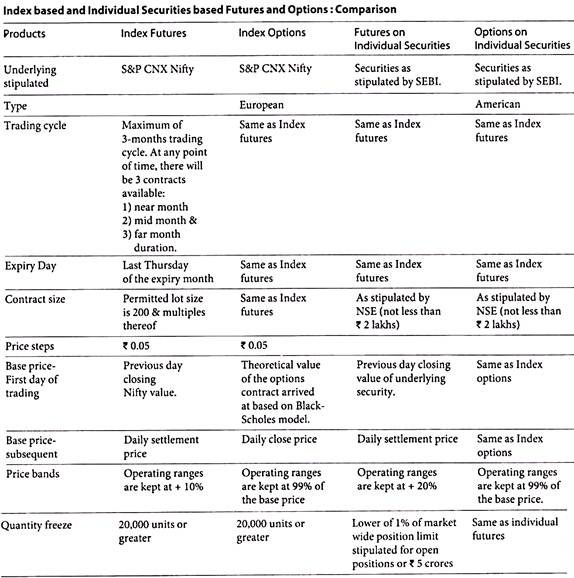
A futures contract is a forward contract to buy an asset such as a stock or commodity in the future at a fixed price. Futures and options are the major types of stock derivatives traded in a share market.

Futures are used to both hedge and speculate possible price movements of stock.
What is stock futures and options. What are Futures and Options. Futures and options are the major types of stock derivatives traded in a share market. These are contracts signed by two parties for trading a stock asset at a predetermined price on a later date.
Such contracts try to hedge market risks involved in stock market trading by locking in the price beforehand. Futures and options are two major financial instruments traded in the derivatives market. Futures are obligatory contracts that bind the trader to buy or sell an underlying stock or index at a future date on a pre-set price.
Conversely you can enter a long position by buying an option and paying the premium. The options contract contains a strike price a future value of an asset. Let us now understand how trading done in Futures and Options in stock market.
Trading in Futures and Options in Share Market. In the stock market trading is done in 2 segments. In the cash market the participants can buy or sell any number of shares they want.
But in the future and option segment the participants can buy and sell contracts which have a. Options trading is common with stocks and related products while futures have traditionally involved trading commodities like grains or precious metals or currencies. But over the years the two.
There are two types of derivatives futures and options. Apart from being a hedge against price fluctuations they can be traded on exchanges such as commodities stocks and currency. Future and option trading enable those who are disinterested in the underlying asset to.
What are Futures and Options. A Future is a right and an obligation to buy or sell an underlying stock or other assets at a predetermined price and deliverable at a predetermined time. Options are a right without an obligation to buy or sell equity or index.
A Call Option is a right to buy while a Put Option is a right to sell. A futures contract allows you to buy or sell an underlying stock or index at a preset price for delivery on a future date. Options are of two types – call and put.
A call option gives a buyer the right to purchase an underlying stock or index at a preset price during a contracts liquid life – a month or also week in case of Bank Nifty. 140 Zeilen There has been a lot of changes in the nse Futures and options segment. The key difference between futures and stock options is the change in underlying value represented by changes in the stock option price.
A 1 change in a stock option is equivalent to 1 per. Futures and options are very effective instruments for protecting your equity investments or earning income from price changes in the underlying stocks indices currencies and commodities. Futures and options are tools used by investors when trading in the stock market.
As financial contracts between the buyer and the seller of an asset they offer the potential to earn huge profits. However there are some key differences between futures and options. Click here if you want to know how to buy and sell Futures Contracts.
Futures and Options. Stock market offers several products for investment and trading purposes. Few of them are mutual funds equity IPO NCDs bonds derivatives etc.
Let us learn about futures and options that fall under the category of derivatives. Derivatives are contracts that are made between two parties willing to buy or sell the underlying asset at a fixed price and fixed time. A futures contract is a forward contract to buy an asset such as a stock or commodity in the future at a fixed price.
An options contract allows an investor to sell or buy an asset such as stock. Futures are used to both hedge and speculate possible price movements of stock. Participants in a Futures market can profit from such contracts because they.
An option is the right not the obligation to buy or sell a futures contract at a designated strike price for a particular time. Buying options allows a trader to speculate on changes in the price of a futures contract. This is accomplished by purchasing call or put options.